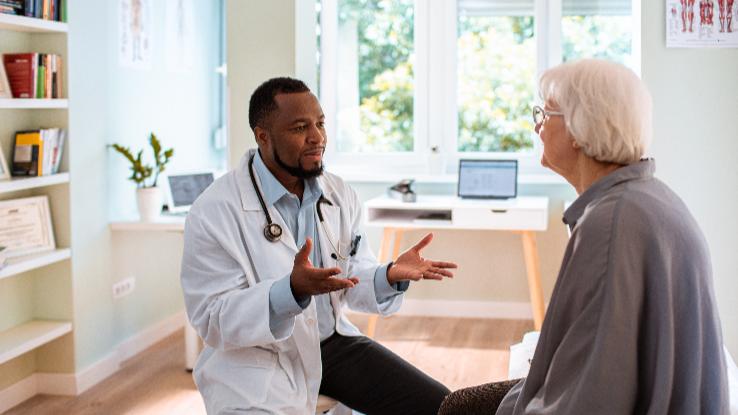
Searching for a new doctor can feel overwhelming — and it can take some time to find a doctor you’re comfortable with. But it’s worth the effort! When you get sick or injured, having a primary care doctor can make it easier to get help quickly. Primary care doctors can also keep an eye on your overall health and find problems early, when they’re easier to treat.
So follow these tips to find a primary care doctor near you.
Check With Your Insurance Company
If you have health insurance, your insurance provider may have resources available to help you find a doctor in your area. See if your insurance plan’s website or member portal has a tool to search for in-network providers.
You can use these tools to find not only primary care doctors, but also specialists like cardiologists, oncologists, pediatricians and mental health professionals. You can usually filter to show only doctors who are accepting new patients. There may also be reviews or ratings for different doctors to help you make a decision.
If an online tool isn’t an option for you, you can call the custom service number for your insurance plan and ask for help finding a local doctor.
And if you have Medicare, you can use this tool to find doctors in your area who accept Medicare.
Ask Friends and Family for Recommendations
When you’re looking for a new doctor, recommendations from loved ones can help you feel more comfortable. Ask friends and family if they’ve had good experiences with local doctors. Getting referrals from people you know and trust can be even more reassuring than reading reviews online — and you may get a better sense of a doctor’s attitude this way.
And if you’ve seen another doctor you liked in the past, try asking them for referrals. A recommendation from a trusted health professional can also be really valuable.
Use Doctor Review and Rating Sites
Aside from your insurance provider’s online tools, there are lots of helpful websites that rate and review doctors. You can search for local doctors and see what previous patients have to say about them. Sites like Zocdoc, CareDash and Healthgrades may be a good place to start.
If you prefer a doctor who shares or supports a key aspect of your identity, there may be tools or resources that can help. For example, Black Doctors USA can help you connect with Black doctors in your area. And GLMA has a tool to help find LGBTQ+-friendly doctors near you.
And if the rating sites aren’t working out, remember that these sites may not include every single provider in your area, or may not be up to date. You can also try a simple web search to broaden your options. Try searching “primary care doctor near me” or with your zip code, and you’ll likely find some relevant options.
Make Sure Your Doctor Is a Good Fit for You
Even with a good reputation, a doctor still needs to be a good fit for you. You want someone knowledgeable and professional — but also someone who explains things clearly and takes your concerns and needs seriously. And perhaps most importantly, you need a doctor who earns your trust and treats you with respect.
When picking a doctor, you may want to consider the following questions:
- How responsive are they when you have a question?
- Are the office staff friendly and attentive?
- Does their training include your specific medical conditions?
- Do they listen and pay close attention when you’re speaking?
- Do they offer telehealth options or other specific services you’re interested in?
- What’s the office’s cancellation policy, in case you can’t make an appointment?
In the first visit — or even before you go to the first visit — you may want to talk with the doctor and office staff about specific concerns you have. For example, some people may avoid going to the doctor because they don’t like talking about their weight. Whatever your concerns, just be open and up front about them. A good doctor will find a way to provide care while respecting your boundaries.
And if you don’t think a certain doctor is a good fit for you, don’t be afraid to switch! Remember, doctors are there to care for you — so if you’re not comfortable or satisfied with your treatment, find a new doctor who can better meet your needs.





